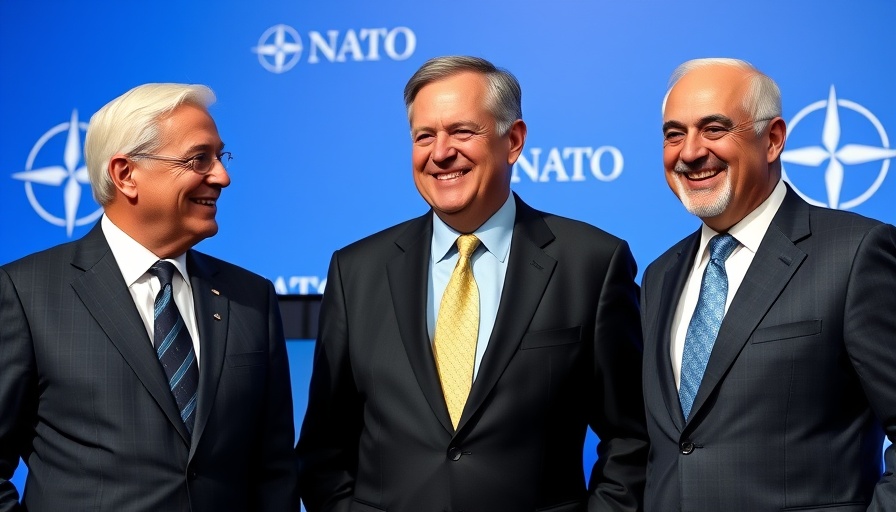
NATO's Bold New Defence Spending Target and Its Implications
In a significant shift that reflects the evolving global security landscape, Canada, along with its NATO allies, has committed to a new defence spending target of five percent of Gross Domestic Product (GDP) by 2035. This decision came during a recent NATO summit where member nations laid out detailed strategies for bolstering their military capabilities in response to increasing threats.
Understanding the Five Percent Commitment
The five percent target presents an ambitious challenge for Canada. This spending plan is divided into two categories: core defence requirements and broader defence-related infrastructure and industry. This bifurcation indicates a more nuanced approach to defence spending, aiming not just at immediate military needs but also at long-term strategic investments.
Prime Minister Mark Carney expressed optimism regarding Canada’s ability to meet these new objectives, which marks a significant increase in defence spending for the country. Canada's previous contributions had lagged behind the NATO benchmark, placing pressure on the government to realign its priorities in the wake of emerging global threats.
The Current State of Canadian Defence Spending
Historically, Canada has faced criticism for its relatively low defence expenditure. At the summit, David Perry, president of the Canadian Global Affairs Institute, noted that this increase represents the most significant escalation in finance since the "massive reforms" in Canadian defence policy.
With an eye towards enhancing both military and civil security, the plan signals a shift in national discourse, one that may soon invite discussions about the trade-offs necessary to sustain such high spending levels.
The Global Context of NATO's Defence Goals
NATO's new goals come at a time of heightened geopolitical tensions, especially in Eastern Europe and the Asia-Pacific region. This adjusted target aims to ensure that NATO countries are adequately prepared to address threats from state and non-state actors alike.
Experts argue that this isn't merely about numbers; it’s about a commitment to collective security. Strengthening defence ties among allies, while ensuring interoperability and shared resources, offers a strategic advantage in responding to crises.
Looking Ahead: The Future of Canadian Defence
The potential for increased defence spending might lead to economic implications for Canada, particularly in how the government balances the newfound commitments with domestic priorities. As Prime Minister Carney noted, maintaining a dialogue with citizens will be crucial, particularly as trade-offs become inevitable.
This shift also presents an opportunity for Canada to modernize its armed forces and adapt to technological advances in defense equipment and strategies. Investing in innovation, cybersecurity, and infrastructure becomes paramount to keeping pace with rapidly changing global dynamics.
Final Thoughts on the Spending Pledge
The pledge to increase defence spending to five percent of GDP by 2035 represents a monumental change in how Canada and its NATO allies will approach their military needs. As conversations around military funding continue, the important task ahead will be to maintain transparency and inclusivity in these discussions, ensuring citizens understand the rationale and implications of their government’s commitments.
As this transition unfolds, it's vital for Canadians to engage with their leaders about the implications of this spending pledge, moving beyond mere analysis to seeking actionable insights and understanding how these developments impact their lives.
 Add Row
Add Row  Add
Add 




Write A Comment